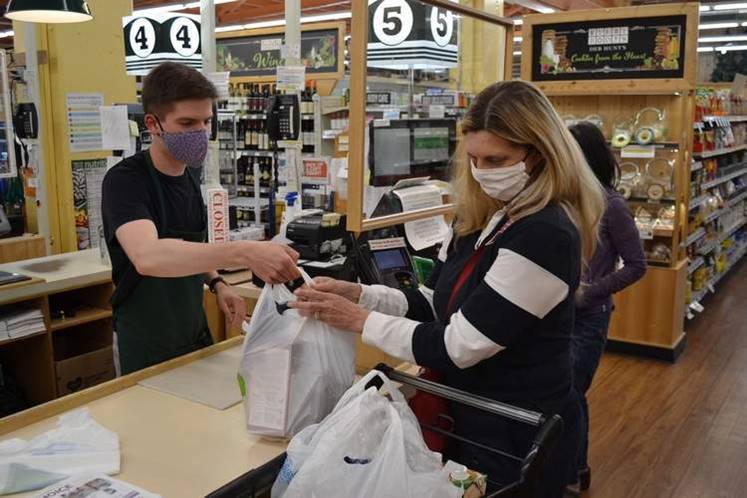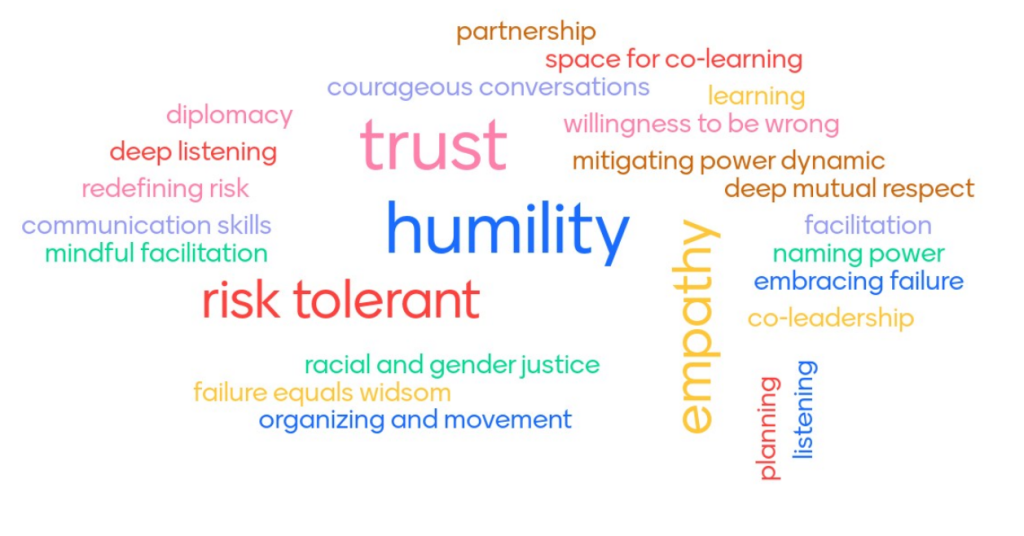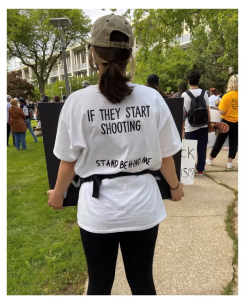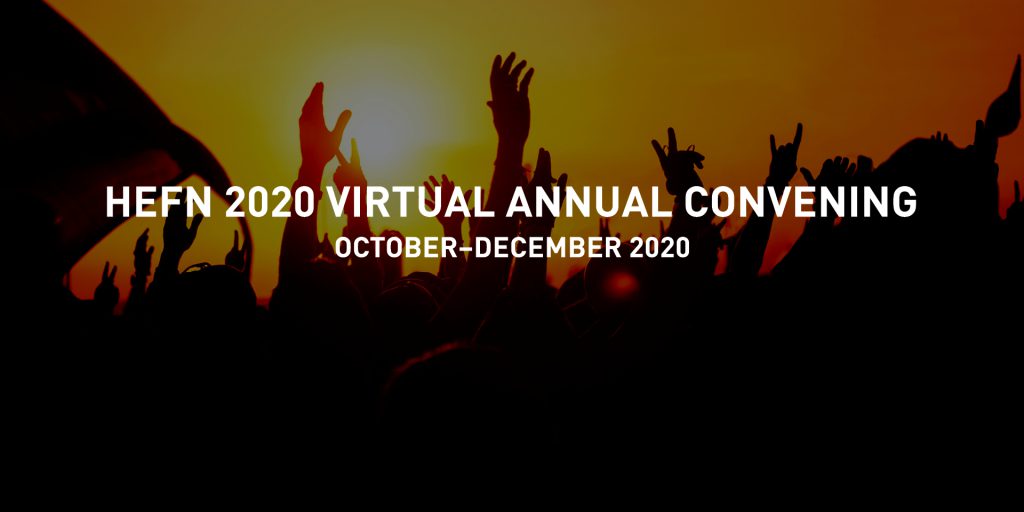They will see how this time provided a shift in foundation and frequency, how it challenged outdated systems and let go of antiquated belief and how we were forced to grow our courage and practice care in the midst of grief.
…When they research about these days from the uprisings to the downfalls, they will unravel the knots and connect the dots and they too will heed the call with dignity and integrity, ancestral wisdom and pride, where creativity and imagination move head and heart into alignment.
-Poet Sunni Patterson, Oct. 19 Opening Plenary, HEFN 2020 Virtual Convening
As the unprecedented challenges of the past year overflow into 2021, HEFN is deeply grateful for the unwavering support of the environmental health and justice community that supported its work in 2020. Amidst last year’s twin plagues of a global pandemic and racial unrest, HEFN ramped up its projects on climate, health and equity, and toxics, including lead poisoning prevention. And the organization responded with new funder initiatives on racial justice and participatory grantmaking as it seeks ways to build leadership among those most impacted by environmental injustice issues.
Here’s a snapshot of HEFN’s work in 2020:
HEFN’s groundbreaking work in climate, health and equity continued with the March release of the white paper, “Climate Change, Health, and Equity Survey Findings: Gaps, Needs, and Opportunities,” cited in a Health Affairs Grantwatch.
The report was based upon responses by nearly 200 organizations to a survey jointly designed and distributed by seven organizations: Biodiversity Funders Group (BFG) / Climate and Energy Funders Group (CEFG), Environmental Grantmakers Association (EGA), Funders’ Network for Smart Growth and Livable Communities (TFN), Grantmakers In Health (GIH), Health and Environmental Funders Network (HEFN), and Sustainable Agriculture and Food Systems Funders (SAFSF). The report identified opportunities to align public health planning related to climate change with health planning related to the pandemic and racial equity, and proposed ways to expand the affinity-group collaboration HEFN has led to include several additional funder networks. HEFN also designed and led a webinar/workshop on climate, health, and equity at the United Philanthropy Forum’s annual convening in August, and helped develop with The Kresge Foundation a session at EGA’s annual retreat in September. HEFN spent the last six months of 2020 gathering and curating an immense amount of information for a national climate, health, and equity online funder toolkit that will go live early this year.

HEFN’s Past Petro working group held several monthly calls for funders dedicated to addressing the harmful impacts of shale oil and gas development and its expansion into petrochemicals and plastics. In February, Chris Meyer, Rockefeller Family Fund, spoke about how the Funder Collaborative on Oil and Gas is investigating meaningful opportunities to expand the base of public support in Texas for limiting oil and gas development. Justin Nobel, freelance journalist and author of a recent Rolling Stone investigative report, presented about radioactive materials in the fossil fuel industry at April’s call. In May, Judith Enck, President of Beyond Plastics and Former EPA Regional Administrator, addressed how the petrochemical industry is using the pandemic to roll back plastic bans and how activists are working to stop them. The June call featured Nick Caleb, Center for Sustainable Economy, spoke about the innovative strategies of his Oregon-based group to demand the industry pay for harms to frontline communities. Matt Krogh, Stand.Earth, addressed how the Safe Cities movement is promoting a suite of policies from local climate emergency declarations to restrictions on new fossil fuel infrastructure to electrification policies at the July call. HEFN also conducted a Past Petro-focused session at its annual convening that focused on how advocates were shifting strategies during a year of profound change.
HEFN’s toxics funding expansion, integration, and modernization project continues to identify and engage new funding for toxics work. The groups participating in the major donor outreach project completed a collaborative case statement over the summer and conducted three launch events to familiarize prospective funders and connectors to funders with the project. The groups began reaching out to prospective funders in September and are now in contact with more than 75 prospective donors to revitalize toxics funding.

The Lead Funders Action Network (LFAN) buoyed HEFN’s work to improve children’s and communities’ environmental health by its active work to address lead in housing, drinking water, and the environment. LFAN’s quarterly calls included an April presentation by speakers from Earthjustice on its Better Lead Policy toolkit at a webinar facilitated by Arturo Garcia-Costas, New York Community Trust. The project, funded by the New York Community Trust, gives community advocates the resources to lead the development of lead poisoning prevention programs in their own neighborhoods. Learn more.
LFAN’s work gathered momentum through the year with calls in August for impact investors to learn about an innovative Lead Safe Home Funds project led by Dan Cohn, Mt. Sinai Health Care Foundation, in Cleveland, Ohio. The project addressed lead hazards as a “foot in the door” for serious policy and systems changes to improve poor housing conditions at scale. In 2021, LFAN – currently led by co-chairs Cris Doby, Erb Foundation, and Rebecca Morley, Robert Wood Johnson Foundation – is considering a focus around federal policy with the new administration. Read more about LFAN and see links to its work: a national legal scan, a scan of financing mechanisms for lead remediation, a report on equitable lead policies, and a web tool to help states and localities calculate the costs and benefits of various lead policies.
Advancing racial and gender equity and grassroots organizing equity is at the heart of HEFN’s work to mobilize philanthropy around environmental health and justice solutions. In response to increased attention on equity, racial justice and re-evaluating white supremacist culture, HEFN launched new projects to help shift the power in philanthropy:

In early April, HEFN created a participatory grantmaking learning community for funders to learn more about the practice that “cedes decision making power about funding— including the strategy and criteria behind those decisions —to the very communities that funders aim to serve (Grantcraft, Deciding Together).” The group held several calls through the year as it delved into ways to support each other, and held a Nov. 20 skill building session during the 2020 Annual Convening. The workshop was co-planned and moderated by thought leaders Kat Gilje, Ceres Trust, and Trina Jackson, Building Equity and Alignment for Impact (BEAI) Fund Director for Grassroots International. Attendees learned about two participatory grantmaking models —Mosaic, presented by Katie Robinson, and The Fund to Build Grassroots Power, presented by Anna Loizeaux, The JPB Foundation. The group then discussed challenges, and skills (INSERT GRAPHIC) that would help them implement the practice in their work.
In April, nearly 30 HEFN members joined an Open Forum to share how their organizations are supporting their grantees in the immediate economic and health crisis, and with long-term. Building on the focus on movement partners, HEFN partnered with EGA and the BEA Fund on the June 16 BEA Funder Ally Webinar, “Philanthropic-Grassroots Cooperation to Meet the COVID-19 Crisis.” More than 80 attendees heard directly from frontline grassroots environmental justice organizations to talk about the impact of the COVID-19 crisis on their communities and for philanthropy, network alliances, and national allies to continue dialogues on ways to respond and support the grassroots during this time.

In June, HEFN spoke out in solidarity with the Black Lives Matter Movement and racial justice as national tensions rose over the murders of George Floyd, Breonna Taylor and Ahmaud Arbery. Juwon Harris, formerly of the Kresge Foundation and HEFN’s Advancing Equity and Grassroots Organizing Committee, led a HEFN Open Forum/Community Chat around racial justice on June 11 on how he and his colleagues are responding to this moment in the racial justice movement.
HEFN ramped up its racial justice work in August, calling for members to amplify support to national/regional coalitions/networks/funds that have been created to regrant to or have a structural participatory grant-making process that supports front-line, grassroots, BIPOC-led organizations. Members responded in droves, resulting in a list of BIPOC-led and governed organizations and regrantors within their networks. Read more in, “Let’s Move Like a River and Flow,” racial justice blog series by Kat Gilje, Ceres Trust, who serves on HEFN’s Steering Committee and Grassroots, Equity and Organizing Committee.
Throughout the year, the HEFN community continued to grow and shift. The organization welcomed new members — the Central New York Community Foundation, High Tide Foundation, Laughing Gull Foundation, Philanthropic + Nonprofit Consulting, Roy & Patricia Disney Family Foundation, Verna Harrison Associates and The Russell Family Foundation — and new leadership. Leslie Hatfield, GRACE Communications Foundation, and Anuja Mendiratta, Philanthropic + Nonprofit Consulting, started terms the HEFN Steering Committee. HEFN also bid a fond farewell to Andrea Bretting, senior program officer at Claneil Foundation, and Christine James, executive director at the John Merck Fund, as their terms ended. Jalonne L. White-Newsome, senior program officer at The Kresge Foundation, stepped down as HEFN Steering Committee co-chair, and thankfully will remain for a third term. Welcome to Ogonnaya Dotson Newman, senior program officer at The JPB Foundation, HEFN’s new co-chair for 2021, joining current co-chair Shorey Myers, executive director of the Jenifer Altman Foundation.

As with most organizations, HEFN pivoted from traditional, in-person gatherings due to the novel coronavirus, and offered innovative new ways for its funders, movement partners and philanthropy serving organizations to collaborate and connect toward a more just world. For its first virtual annual convening, HEFN chose the theme, “It’s the Air We Breathe: Philanthropy’s Role in Dismantling Systems of Injustice with a Two-Year Focus on the South.” The event offered nine sessions starting with an Oct. 19 Opening Plenary and ending Dec. 21 with a nearly 60% increase in registration from last year’s 2019 Annual Meeting and 20th Anniversary Celebration. Grantees of HEFN funder members and others representing communities of color, low-income communities, women, indigenous or young people, and other groups highly impacted by environmental health and justice problems played key roles as meeting speakers and planners. HEFN’s 2021 event will continue its two-year exploration of philanthropy’s role to address reform, resilience, recovery, and reinvention with a special focus on the South, a region deeply underfunded despite its great need.
HEFN staff provided 13 office hours to funders and NGOs, consulting on HEFN’s work and the field of environmental health and justice. After one such call, one environmental group that works on toxics reported that HEFN’s advice resulted in the opportunity to apply for tens of thousands of dollars in grant money from two major foundations. This was a heartening success story during a dreary year, providing proof that HEFN serves grantees as well as funders.
Get Involved
Learn More about how to join HEFN and become a member. Benefits include discounted registration rates for HEFN meetings, access to member-only programs and a grants data portal, skill-building and leadership development opportunities.
Signup HEFN newsletter, topic email email groups supporting funder peer exchange on critical environmental health and justice topics.

